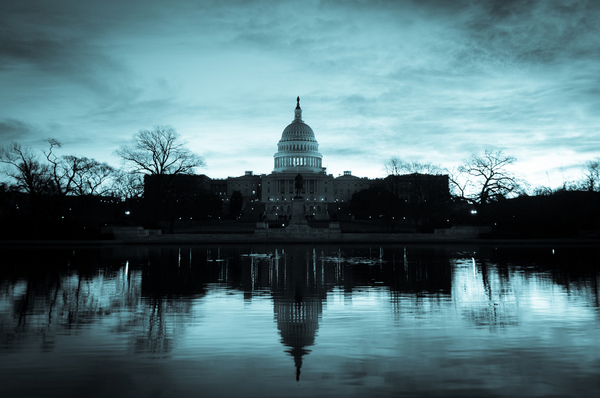
The government maintains a "no fly" list. Car rental companies keep "do not rent" lists. Hotels sometimes blacklist guests. So it probably makes sense that your favorite consumer advocate has a "do not mediate" list.
And since, ahem, I am your favorite consumer advocate, let me admit that I do, in fact, keep such a list.
I'm not afraid to share it with you, either.
The timing of my confession couldn't be better -- or maybe I should say, worse. The word "no" is being thrown around a lot in Washington these days, where everyone from your Tea Party congressman to the House Majority Leader, to the president, seem to be stuck on the word. So our government remains shuttered and we're racing toward a debt-limit induced recession.
Oh no.
Before I get to the details, here's a little good news: my list isn't based on who you are, but on the solvability of your case. In other words, I won't turn you down because it's you. I judge all requests not by the color of your loyalty card, but by the content of your question.
(I do have a separate "do-not-quote" list for sources, but I'll share that with you next week. I'm sure it'll make a lot of people unhappy. All the more reason to tune in, my friends.)
Here's my list, and the reason why I can't help:
Visa or passport problems that led to denied boarding.
Proper paperwork is your responsibility, and yours alone. Even if a travel agent, airline or cruise line gives you bogus advice, it's still your responsibility.
Missing loyalty points.
Loyalty programs are addictive and expensive for the average consumer. What's more, they encourage companies to quietly remove necessary amenities and services from ordinary, non-elite customers. If your points were expired or confiscated, then thank the company for doing you a favor, cut up your card, and don't look back.
Recently lost or misplaced luggage.
"Help us find our luggage" is one of the worst kinds of complaints, but also unresolvable by an advocate. Think about it. Am I going to tell the airline or cruise line to look harder? I wish I could.
Compensation for delays that resulted in lost vacation or work days.
No, you can't apply the car rental industry's "loss of use" principle to your work or vacation. If you missed a day of your hotel stay while you were transiting through foreign airports, write it off as an adventure.
Airline seat comfort issues.
Can of worms, that one. If you're complaining about the comfort of your economy class seat, I have just one question: Where did you find the time machine that took you here from the '70s?
Asking an company to honor an obvious price error.
People who intentionally book "fat-finger" fares are trying to steal. Normally, the passengers who buy them by accident and are offered a refund have absolutely no problem with it. I won't become an accessory to theft.
Getting a refund for a nonrefundable airline ticket or hotel room.
Although some notable restrictions apply to this rule, I normally can't get a refund on a nonrefundable travel purchase, no matter what I say. Do I think you deserve one? I might, but rules are still rules.
Airfares that go up after selecting a flight option (caching).
This is one of the most frustrating aspects of buying air travel. Thanks to antiquated technology, it's possible for you to "see" an airfare or hotel rate that is no longer available. You'll be offered another fare, almost always higher than the one you wanted. No, it's not a bait-and-switch. And no, I can't pressure the airline into lowering the price for you as an exception.
Any case that's been referred to a company's legal department.
Once the lawyers sink their teeth into your case, it's out of my hands. Seriously, there's almost nothing I can do. That's especially true if I've been threatened with legal action. It's in the hands of the lawyers.
Some exceptions apply, of course.
For example, you might be able to make a strong case that a refund rule shouldn't apply to you. The best appeals don't involve your personal circumstances ("I'm a single mother and a disabled veteran on fixed income") but relate to the lack of disclosure about these often incomprehensible restrictions. So, for example, if you can make a persuasive case that the State Department's site was incorrectly interpreted by an airline gate agent, then that may be a reason for me to get involved.
How I say "no"
Here's another trick of the trade. I've found that telling people "no" often sends them into a fit of rage. How dare I refuse their case? They behave as if I'm their personal problem-solving valet.
Instead of replying with a flat-out rejection, I've developed a form response that says I'll carefully consider the case and get back to the reader if I can help. I also refer the consumer to my frequently asked questions, in which I include the "no mediate" list.
In an ideal world, I wouldn't have to say "no" to any case -- and no problem should be unresolvable. But the world we live and travel in is anything but perfect.
After you've left a comment here telling me how heartless I am and that you're going to take your next complaint to another ombudsman -- good luck with that, by the way -- let's continue the discussion on my consumer advocacy site or on Twitter, Facebook and Google. I also have a free newsletter and you'll definitely want to pre-order my new, amazingly helpful and subversive book called How to Be the World's Smartest Traveler (and Save Time, Money, and Hassle). Photo: Orhan Cam/Shutterstock